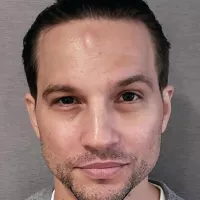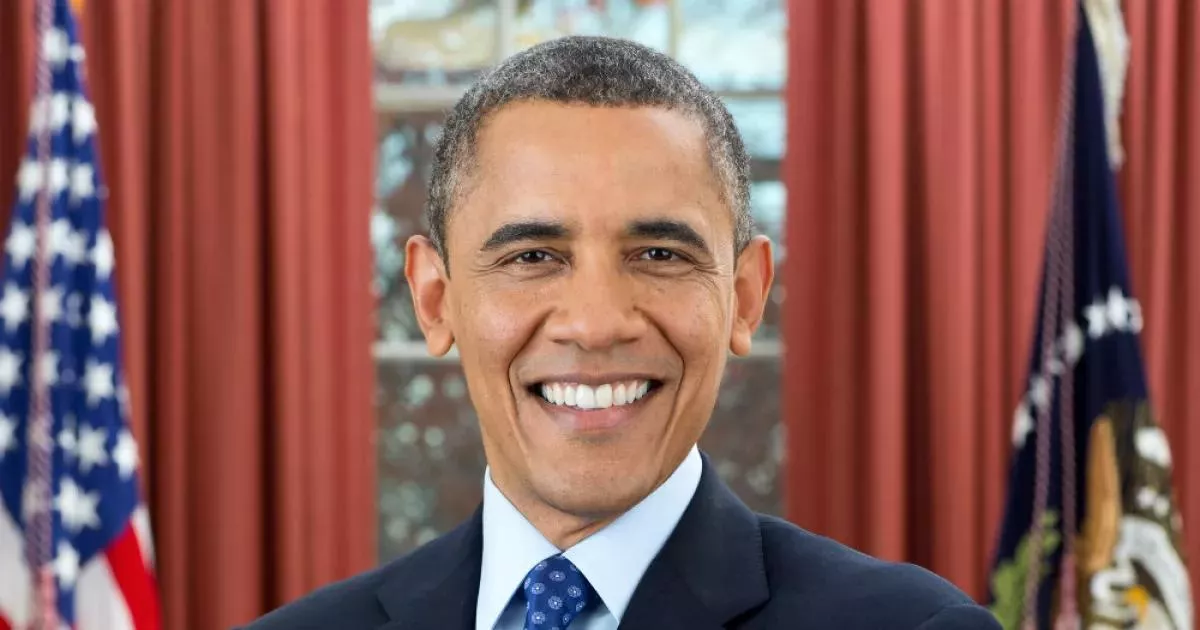Resilience and perseverance in the journey of Barack Obama. A timeline of obstacles and growth.
Barack Obama, the 44th U.S. President (2009-2017), was the first African American to hold the office. A Democrat, he served as a U.S. Senator for Illinois (2005-2008) and an Illinois State Senator (1997-2004). His presidency was marked by the Affordable Care Act, the end of the Iraq War, and the killing of Osama bin Laden. Prior to his political career, Obama was a community organizer and civil rights attorney. He is a graduate of Columbia University and Harvard Law School.
2000: Loss in Democratic Primary for U.S. House of Representatives
In 2000, Barack Obama lost a Democratic primary race for Illinois's 1st congressional district in the United States House of Representatives to Bobby Rush.
2001: Gallup Poll on Race Relations
In 2001, a gallop poll showed the number of Americans worried about race relations was lower than in 2016.
2006: Federal Bureau of Alcohol, Tobacco, Firearms and Explosives Head Appointment
Since 2006, the head of the federal Bureau of Alcohol, Tobacco, Firearms and Explosives has not been appointed.
2008: Response to the 2008 financial crisis
In 2008, Obama's administration responded to the financial crisis with measures including the American Recovery and Reinvestment Act of 2009
2008: Start of the Financial Crisis
In 2008, the financial crisis began and in March 2009, Obama's Treasury Secretary, Timothy Geithner, took further steps to manage the 2008 financial crisis, including introducing the Public–Private Investment Program for Legacy Assets.
2008: Great Recession
Many commentators credit Obama with averting a threatened depression and pulling the economy back from the Great Recession in 2008.
February 2009: Obama Increased Troop Levels in Afghanistan
In February 2009, President Obama announced an increase in U.S. troop levels to 17,000 military personnel in Afghanistan to "stabilize a deteriorating situation in Afghanistan".
March 2009: Intervention in Automotive Industry
In March 2009, President Obama intervened in the troubled automotive industry by renewing loans for General Motors (GM) and Chrysler to allow them to continue operations while reorganizing. The White House set terms for both firms' bankruptcies, including the sale of Chrysler to Fiat and a reorganization of GM giving the U.S. government a temporary 60 percent equity stake.
March 2009: Steps to Manage the 2008 Financial Crisis
In March 2009, Treasury Secretary Timothy Geithner, under President Obama, introduced the Public–Private Investment Program for Legacy Assets to manage the 2008 financial crisis, which included provisions for buying up to $2 trillion in depreciated real estate assets. This initiative was part of the broader efforts to stabilize the financial system during the economic downturn.
December 1, 2009: Obama Announced Troop Surge in Afghanistan
On December 1, 2009, President Obama announced the deployment of an additional 30,000 military personnel to Afghanistan and proposed to begin troop withdrawals 18 months from that date.
2009: Rise in unemployment rate
In 2009, the unemployment rate rose, reaching a peak in October at 10.0 percent and averaging 10.0 percent in the fourth quarter. GDP growth returned in the third quarter of 2009, expanding at a rate of 1.6 percent, followed by a 5.0 percent increase in the fourth quarter.
April 2010: Survey on Job Creation
An April 2010 survey of members of the National Association for Business Economics showed an increase in job creation (over a similar January survey) for the first time in two years. However, 73 percent of 68 respondents believed the stimulus bill had no impact on employment.
April 20, 2010: Deepwater Horizon Oil Spill
On April 20, 2010, an explosion destroyed an offshore drilling rig at the Macondo Prospect in the Gulf of Mexico, causing a major sustained oil leak. President Obama visited the Gulf, announced a federal investigation, and formed a bipartisan commission to recommend new safety standards. He also announced a six-month moratorium on new deepwater drilling permits and leases, pending regulatory review.
July 2010: Federal Reserve Assessment of Economic Activity
In July 2010, the Federal Reserve noted that economic activity continued to increase, but its pace had slowed. Chairman Ben Bernanke said the economic outlook was "unusually uncertain".
February 2011: Protests Began in Libya Against Gaddafi
In February 2011, protests in Libya began against long-time dictator Muammar Gaddafi as part of the Arab Spring, and soon turned violent.
July 2011: Start of Troop Withdrawals from Afghanistan
In July 2011, President Obama began troop withdrawals from Afghanistan, 18 months after announcing the deployment of an additional 30,000 troops.
August 2, 2011: Signing of the Budget Control Act of 2011
On August 2, 2011, President Obama signed the bipartisan Budget Control Act of 2011 after a congressional debate over raising the nation's debt limit. The legislation enforced limits on discretionary spending until 2021, established a procedure to increase the debt limit, created a Congressional Joint Select Committee on Deficit Reduction, and established automatic procedures for reducing spending if the committee's legislation did not achieve sufficient savings, preventing a U.S. government default.
August 18, 2011: Obama Called for Assad to Step Aside
On August 18, 2011, President Obama issued a written statement that said: "The time has come for President Assad to step aside."
2011: Military Intervention in Iraq After Gains Made by ISIL
Following the 2011 withdrawal from Iraq, Obama ordered military intervention in Iraq after gains made by ISIL.
June 28, 2012: Supreme Court Ruling on ACA Mandate
On June 28, 2012, the Supreme Court ruled by a 5–4 vote in National Federation of Independent Business v. Sebelius that the individual mandate in the Affordable Care Act (ACA) was constitutional under the U.S. Congress's taxing authority.
2012: Obama Authorized Programs to Train Anti-Assad Rebels
In 2012, President Obama authorized multiple programs run by the CIA and the Pentagon to train anti-Assad rebels in Syria.
January 16, 2013: Gun Control Proposals
On January 16, 2013, one month after the Sandy Hook Elementary School shooting, Obama signed 23 executive orders and outlined a series of proposals regarding gun control, including urging Congress to reintroduce an expired ban on military-style assault weapons and introduce background checks on all gun sales.
December 2013: Addressing Income Inequality
In December 2013, President Obama declared that growing income inequality is a "defining challenge of our time" and called on Congress to bolster the safety net and raise wages. He also urged Congress to ratify a 12-nation free trade pact called the Trans-Pacific Partnership.
2013: Global Surveillance Disclosures
Following the 2013 global surveillance disclosures by Edward Snowden, Obama condemned the leak as unpatriotic but called for increased restrictions on the National Security Agency (NSA) to address violations of privacy.
June 2014: Obama Sends Troops to Baghdad Following ISIL Capture of Mosul
In June 2014, following the capture of Mosul by ISIL, President Obama sent 275 troops to provide support and security for U.S. personnel and the U.S. Embassy in Baghdad.
August 2014: Obama Orders Airstrikes Against ISIL During Sinjar Massacre
In August 2014, during the Sinjar massacre, President Obama ordered a campaign of U.S. airstrikes against ISIL.
2014: Obama Authorized Air Campaign Against ISIL
In 2014, President Obama authorized an air campaign aimed primarily at ISIL in Syria.
2014: Russia's Invasion of Crimea
In 2014, Russia invaded Crimea, marking a significant geopolitical event.
February 24, 2015: Veto of Keystone XL Pipeline Bill
On February 24, 2015, President Obama vetoed a bill that would have authorized the Keystone XL pipeline. It was the third veto of his presidency and his first major veto.
March 2015: Obama Authorizes Support for Saudis in Yemen Intervention
In March 2015, President Obama authorized U.S. forces to provide logistical and intelligence support to the Saudi Arabian-led military intervention in Yemen, establishing a "Joint Planning Cell" with Saudi Arabia.
October 2015: Pentagon-Run Program to Train Anti-Assad Rebels Abandoned
In October 2015, the Pentagon-run program in Syria was formally abandoned after it was found to have failed.
October 2015: White House Announced Plan to Keep U.S. Forces in Afghanistan Indefinitely
In October 2015, the White House announced a plan to keep U.S. Forces in Afghanistan indefinitely in light of the deteriorating security situation.
November 2015: Obama Reaffirmed Stance on Assad Stepping Aside
In November 2015, President Obama reaffirmed his stance that "The time has come for President Assad to step aside."
2015: Increase in U.S. Ground Troops in Iraq
In early 2015, with the addition of the "Panther Brigade" of the 82nd Airborne Division, the number of U.S. ground troops in Iraq increased to 4,400, and by July American-led coalition air forces counted 44,000 sorties over the battlefield.
January 5, 2016: Executive Actions on Gun Control
On January 5, 2016, Obama announced new executive actions extending background check requirements to more gun sellers, continuing his efforts to address gun violence.
March 2016: Worries About Race Relations
In a March 2016 Gallup poll, nearly one third of Americans said they worried "a great deal" about race relations, a higher figure than in any previous Gallup poll since 2001.
September 2016: Obama Snubbed at G20 Summit
In September 2016, President Obama was snubbed by Xi Jinping and the Chinese Communist Party upon arrival at Hangzhou International Airport for the 2016 G20 Hangzhou summit, without the customary red carpet welcome.
2016: Sanctions against Russia Following Election Interference
In 2016, Obama initiated sanctions against Russia following Russian interference in the U.S. elections.
2016: Obama's Regret Over Libya Intervention
In 2016, President Obama said "Our coalition could have and should have done more to fill a vacuum left behind" and that it was "a mess" regarding the Libyan intervention. He stated that the lack of preparation surrounding the days following the government's overthrow was the "worst mistake" of his presidency.
2016: Russian Interference in U.S. Presidential Election
In 2016, Russia interfered in the U.S. presidential election, a controversial event that led to discussions about its potential impact on the election's outcome.
2016: Obama Administration Proposed Arms Deals with Saudi Arabia
In 2016, the Obama administration proposed a series of arms deals with Saudi Arabia worth $115 billion. Later, Obama halted the sale of guided munition technology to Saudi Arabia after Saudi warplanes targeted a funeral in Yemen, killing more than 140 people.
2017: Penalty for violating individual mandate repealed
In 2017, the penalty for violating the individual mandate of the Affordable Care Act was repealed, effective in 2019.
2019: Penalty for violating individual mandate repealed
In 2019, the penalty for violating the individual mandate of the Affordable Care Act was repealed, effective in 2019.
Mentioned in this timeline

Donald John Trump is an American politician media personality and...

Pope Francis served as the head of the Catholic Church...

Michelle Obama an American attorney and author served as the...

Bill Clinton served as the nd U S President from...

Hillary Diane Rodham Clinton is a prominent American politician lawyer...

John F Kennedy JFK was the th U S President...
Trending
57 minutes ago Neemias Queta shines: NBA breakout with Celtics, representing Portugal with pride.

57 minutes ago LeBron James' Status and Injury Updates Before Kings vs. Lakers Game

57 minutes ago Catherine O'Hara Honored with Posthumous Actor Award for Role in 'The Studio'

57 minutes ago Lisa Kudrow's 'The Comeback' Season 3 Trailer Released; Valerie Cherish Faces AI Sitcom.

58 minutes ago Logan Marshall-Green discusses 'Marshals,' brotherhood with Kayce, and surviving intense fight choreography.

58 minutes ago Zendaya and Tom Holland Marriage Claims Spark Buzz, According to Stylist Law Roach.
Popular

Jesse Jackson is an American civil rights activist politician and...

Hillary Diane Rodham Clinton is a prominent American politician lawyer...

XXXTentacion born Jahseh Dwayne Ricardo Onfroy was a controversial yet...

Kashyap Pramod Patel is an American lawyer who became the...

Jim Carrey is a Canadian-American actor and comedian celebrated for...

Michael Joseph Jackson the King of Pop was a highly...
